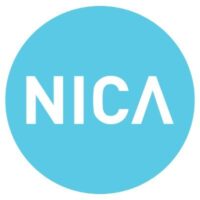November is National Diabetes Month, an observance that invites individuals and communities everywhere to focus attention on diabetes. This educational and advocacy effort is organized and promoted by the National Institute of Diabetes and Digestive and Kidney Diseases (NIDDK), part of the National Institutes of Health.

Elderly patients can be at risk
As we said in Part I, diabetes is a family matter. Managing the condition – and avoiding complications – takes patience, discipline, and teamwork.
Elderly patients face increased risks, including “cognitive impairment, depression, falls, polypharmacy, persistent pain, and urinary incontinence.” [1] Boston’s Joslin Diabetes Center, the world’s largest center for diabetes research, treatment, and education, adds this: ” . . . older patients can experience unique challenges when trying to manage their condition. For example, poor vision and dexterity can make it harder for some older adults to take medication.” Further, many patients are coping with the recent loss of spouses, friends, and family members; this makes it difficult to feel well, eat healthy and exercise. [2]
But what if the person with diabetes is a senior citizen who lives alone, and family members simply can’t be present all the time to help with their care?
Bob’s story
Here’s the story of one of our valued clients.
As an 81-year old, Bob continued living at home after his wife passed away. His daughter-in-law Denise became his main family caregiver. Soon, Denise realized that Bob’s poor vision was causing problems with medication management. His medicines were scattered and disorganized, and Bob complained, “When I try to take them, I keep losing one, and I can’t find it.”
“Every day was different,” says Denise. Bob’s blood sugar levels were out of control, which left him feeling OK some days and lethargic at other times. Denise’s own busy schedule with her grandchildren kept her from keeping close tabs on Bob to make sure he took his proper medicine doses three times a day.
Denise learned from a member of Bob’s medical care team about MEDIpack, from TwelveStone Health Partners. MEDIpack delivers medications to Bob’s door, pre-packaged, and clearly labeled so he’s less likely to get confused about what to take and when.
MEDIpack makes a difference
This has made all the difference in Bob’s health. He’s glad to be able to manage his medicine himself, telling Denise, “I know where my pills are! I know when to take them! I know when I’m running out!” With his blood sugar levels under control, Bob is more active at home, and he’s glad to help Denise run errands around town. The family is impressed with his progress, saying, “He’s like he was ten years ago!”
Proper medication management is crucial for people living with chronic conditions. Bob’s diabetes is under better control with MEDIpack, because he’s at less risk of taking too much or too little of his vital medications.
MEDIpack makes medication management simple, efficient, and accurate. It eliminates the need to sort and count pills each week and reduces trips to the pharmacy. With MEDIpack, medications, vitamins, and over-the-counter products are delivered to the patient’s home each month in easy-open packets. Each contains the correct prescribed medication dose, along with clear day and time instructions. Denise says, “Everything is coordinated, everyone is helpful.” She’s delighted that Bob can continue living independently and have a good quality of life.
TwelveStone collaborates with Bob’s doctor to manage refills and medication changes and submits bills and all paperwork to his insurance company. They can arrange pharmacist consultations, and they can dispatch overnight shipments for medicine that’s needed in a hurry.
“I’ve not had one bad experience with TwelveStone,” says Denise, adding that “I can text or email them any time of the day or night.” In short, she says, “They are wonderful!”
Read more of Bob’s story here.
Learn more about MEDIpack here
[1] Management of Diabetes in Long-term Care and Skilled Nursing Facilities: A Position Statement of the American Diabetes Association – Medha N. Munshi, et.al., Diabetes Care. 2016 Feb; 39(2): 308–318.
https://www.ncbi.nlm.nih.gov/pmc/articles/PMC5317234/
[2] Joslin Diabetes Center Geriatrics section
https://www.joslin.org/patient-care/adult-care/geriatrics, accessed Nov 12 2019















